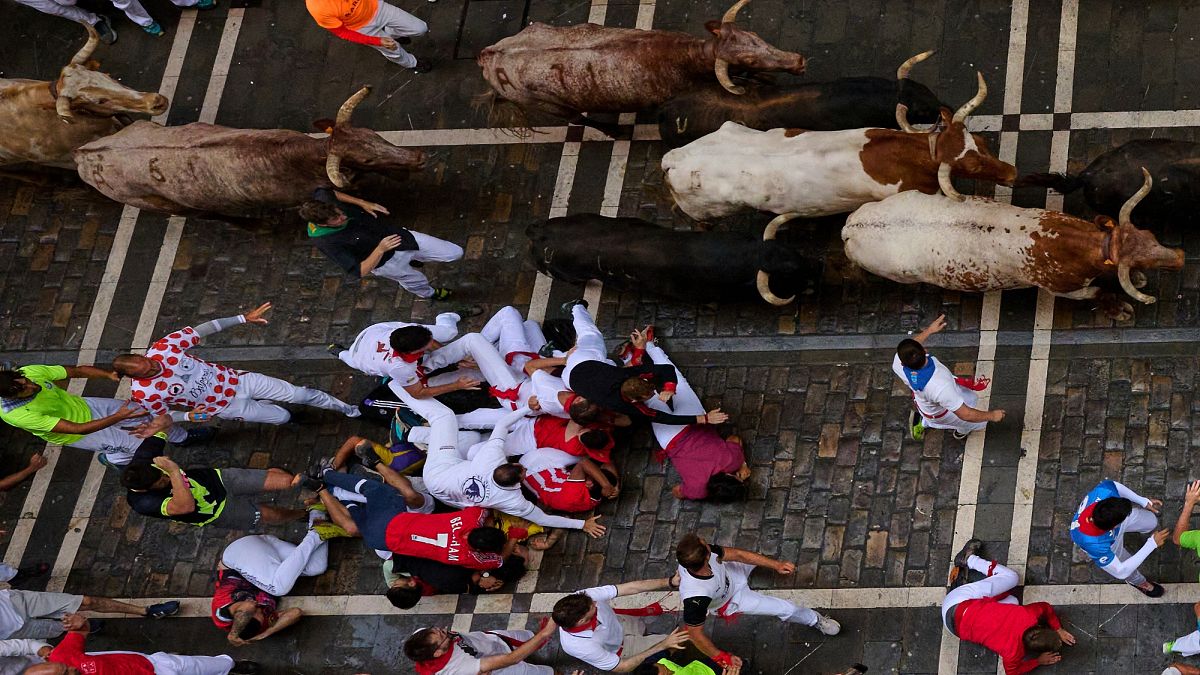

In recent days, a tapestry of stories from around the world has captured international attention. Each story, spanning continents and cultures, offers a look into diverse traditions, surprising controversies, and the reverberation of historical events echoing into the present.
In the spirited city of Pamplona, Spain, the annual San Fermín festival continues to draw thrill-seekers from around the globe for the storied Running of the Bulls. Despite the festival’s long-standing tradition rooted in the region’s history, women remain a small minority among the runners. Pamplona’s city hall data reveals that out of approximately 4,000 participants, only 6% are women. This legendary event encapsulates the evolving dynamics of gender participation in cultural traditions while maintaining its status as a revered spectacle.
Meanwhile, across the continent in the United Kingdom, a culinary controversy has sparked varied reactions. Polish tennis star Iga Świątek, after triumphing in a recent match, shared her unconventional favorite dish: pasta with strawberries. The announcement intrigued many but also drew criticism, including from Polish Prime Minister Donald Tusk, who humorously labeled the dish a “crime against pasta.” This light-hearted debate underscores the diverse culinary tastes that transcend borders and ignite conversations about cultural identity and preferences.
In Australia, a prominent figure linked to a corporate donation is grappling with public scrutiny. Jillian Segal, Australia’s antisemitism envoy, clarified that she was not involved in her husband’s company, Henroth Investments Pty Ltd, making a significant donation to a rightwing group, Advance. The donation, recorded at $50,000, became a focal point due to the group’s controversial stance against various national issues. As the public seeks clarity, Segal’s denial emphasizes her distance from the donation process, highlighting the ongoing relationship between personal affiliations and public roles.
Simultaneously, in Ireland, a poignant and somber chapter of history is being unearthed. Excavations have begun at the site of the former St. Mary’s mother and baby home in Tuam, County Galway. This endeavor follows revelations that nearly 800 infants may have been buried in unmarked graves by the Bon Secours order over several decades. Archaeologists, anthropologists, and forensic experts are collaborating to meticulously uncover and identify remains, offering an opportunity for healing and closure for many affected families. This careful excavation represents a nation’s commitment to reconciling with its past and addressing historical injustices.
Together, these stories paint a picture of a world that is at once grounded in rich traditions and open to new conversations and reckonings. Each narrative reveals a piece of the global mosaic, inviting reflection on the past, engagement with the present, and consideration for the future. As our stories unfold, so too does our understanding of the intricate human experiences that connect us all.
Source: {link}
